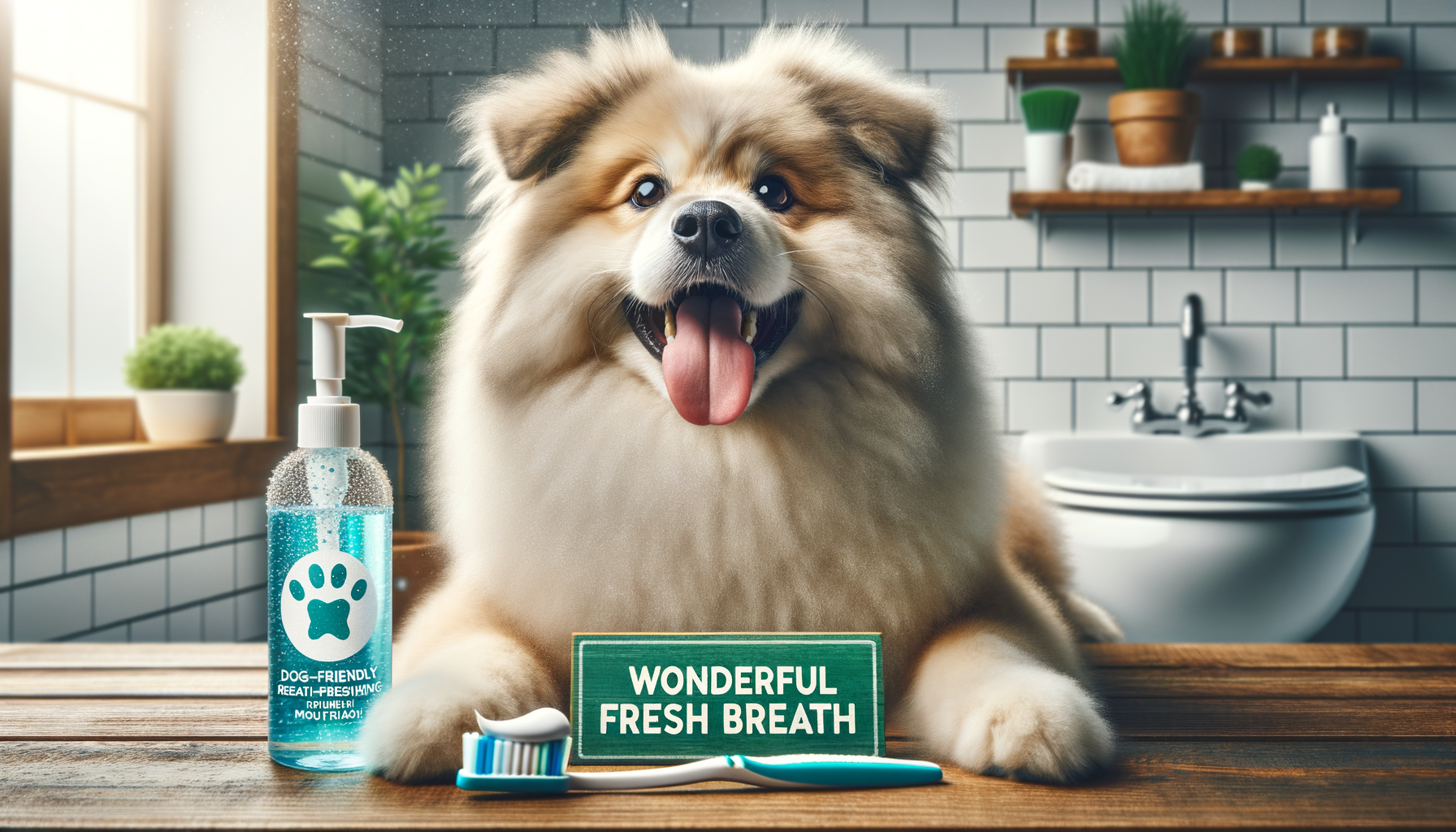Understanding the Causes of Bad Breath in Dogs
Bad breath in dogs, also known as halitosis, is a common issue that many pet owners face. While it might seem like a minor inconvenience, it can actually be a sign of underlying health issues. Understanding the root causes of bad breath is crucial in addressing the problem effectively.
One of the primary causes of bad breath in dogs is poor oral hygiene. Just like humans, dogs need regular dental care to prevent the buildup of plaque and tartar. If left unchecked, these can lead to periodontal disease, which is a significant contributor to bad breath. Additionally, certain dietary habits, such as consuming table scraps or having access to garbage, can exacerbate the issue.
Other potential causes include gastrointestinal problems, liver or kidney disease, and diabetes. Each of these conditions can manifest as bad breath, making it essential for pet owners to consult a veterinarian if the problem persists. Regular check-ups can help identify any serious health concerns early on, ensuring your pet remains healthy and happy.
Home Remedies for Freshening Your Dog’s Breath
For pet owners seeking natural ways to combat their dog’s bad breath, several home remedies can be quite effective. These remedies focus on improving oral hygiene and overall health, which can lead to fresher breath.
One simple method is to regularly brush your dog’s teeth using a toothbrush and toothpaste specifically designed for pets. This helps remove food particles and prevent plaque buildup. Additionally, providing dental chews or toys can aid in cleaning their teeth naturally while keeping them entertained.
Incorporating fresh herbs like parsley into your dog’s diet can also help neutralize bad breath. Parsley is known for its deodorizing properties and can be easily mixed into their food. Another option is to ensure your dog stays hydrated, as water helps wash away food particles and bacteria that cause bad breath.
While these home remedies can be helpful, it’s important to remember that they should complement, not replace, regular veterinary care. If bad breath persists, a trip to the vet is advisable to rule out any underlying health issues.
Professional Veterinary Treatments for Persistent Bad Breath
When home remedies are not enough, professional veterinary treatments may be necessary to address persistent bad breath in dogs. Veterinarians can offer a range of solutions tailored to the specific needs of your pet.
One of the most common treatments is a professional dental cleaning. This procedure involves scaling and polishing your dog’s teeth to remove plaque and tartar buildup that cannot be addressed through regular brushing. It’s typically performed under anesthesia to ensure the comfort and safety of the pet.
In cases where bad breath is a symptom of an underlying medical condition, such as kidney disease or diabetes, treating the root cause is essential. Veterinarians can conduct various tests to diagnose these conditions and recommend appropriate treatments, which may include medication or dietary changes.
Regular veterinary check-ups are crucial for monitoring your dog’s oral health and preventing future issues. By working closely with your vet, you can ensure that your pet receives the care they need to maintain fresh breath and overall well-being.
Dietary Changes to Improve Your Dog’s Breath
Diet plays a significant role in your dog’s oral health, and making certain changes can help improve their breath. Feeding your dog a balanced, high-quality diet is essential for their overall health and can contribute to fresher breath.
Consider incorporating dry kibble into your dog’s diet, as it can help reduce plaque buildup compared to wet food. The crunchiness of kibble acts like a natural toothbrush, scraping away food particles and plaque as your dog chews. Additionally, some specially formulated dog foods are designed to promote oral health and reduce bad breath.
Including raw vegetables like carrots and celery in your dog’s diet can also be beneficial. These vegetables are not only nutritious but can also help clean your dog’s teeth and freshen their breath naturally. However, it’s important to introduce any new foods gradually to avoid digestive upset.
Consulting with your veterinarian about your dog’s diet can provide personalized recommendations based on their specific needs and health conditions. By making informed dietary choices, you can support your dog’s oral health and keep their breath smelling fresh.
Preventing Bad Breath: Long-Term Care Strategies
Prevention is key when it comes to managing your dog’s bad breath. Establishing a routine for oral care and overall health maintenance can significantly reduce the likelihood of bad breath and other related issues.
Regular tooth brushing is one of the most effective ways to prevent bad breath. Aim to brush your dog’s teeth at least a few times a week using pet-friendly toothpaste. This practice helps remove plaque and prevent tartar buildup, which are major contributors to bad breath.
Scheduling regular veterinary check-ups is also essential for early detection and management of any health issues that could lead to bad breath. Your veterinarian can provide guidance on the best oral care practices and recommend products that suit your dog’s needs.
Finally, providing your dog with a healthy diet, plenty of water, and regular exercise can contribute to their overall well-being and help maintain fresh breath. By implementing these long-term care strategies, you can ensure that your dog remains healthy and happy, with breath as fresh as possible.








